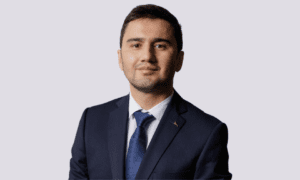As we move into 2025, decentralized autonomous organizations (DAOs) are reshaping conversations about financial power and control. The main appeal of DAOs lies in their ability to put financial decisions directly into the hands of communities — allowing people to govern their own resources and services without a small group of insiders making all the decisions.
For Damodar Bihani, an investor at Delta Blockchain Fund, this marks a dramatic shift in the future of financial services. His view is clear: the most powerful aspect of DAOs is not their technology alone, but their ability to align incentives and empower communities to manage their own financial institutions in a way that reflects their values and priorities.
A Governance Model That Aligns Incentives
Today’s financial institutions typically operate with a small number of stakeholders — boards, regulators, and large shareholders — holding most of the power. Customers and depositors have little say in policy decisions, pricing, or allocation of profits. DAOs upend this structure by tying governance directly to community participation.
Bihani sees this as a way to align incentives across all participants. If the people who use and fund the bank are the ones who govern it, then policy decisions — from setting borrowing criteria to allocating profits — will reflect their needs and priorities. Token holders collectively vote on proposals and policy tweaks, making the bank a true reflection of its community’s will.
This form of participatory governance is especially powerful in communities that have historically been underserved or ignored by the traditional financial system. Whether it’s a small agricultural community in Africa, a diaspora group sending remittances back home, or a network of small businesses looking for financing, a community-directed bank can respond more quickly and accurately to their unique financial conditions.
Why Will This Model Transform Finance
Bihani’s view is not just a theory; it reflects a deep understanding of financial incentives and the power of communal institutions. Given his previous experience with BankDAO, a neo-bank on-chain, he points to the way cooperatives and credit unions successfully filled gaps left by large banks in the 20th-century financial ecosystem. The key difference today is technology — smart contracts and tokens enable these community institutions to operate more efficiently, transparently, and at a scale previously impossible.
He believes that this technological underpinning, combined with a governance structure that directly involves stakeholders, can create financial institutions that are more adaptable, more trustworthy, and more aligned with their communities’ goals.
Such organizations can respond to local needs — for small business loans, agricultural financing, education funding, and health care payments — faster and more accurately than a distant, one-size-fits-all bank. Furthermore, by reducing administrative overhead and eliminating many intermediaries, DAOs can cut costs and pass those savings directly back to their members.
The Paper’s Conceptual Model — A Framework for Implementation
Bihani’s view is supported by a research paper he co-authored, “Decentralized Autonomous Organizations (DAOs): A Conceptual Model for Community-Owned Banking and Financial Governance.” The paper highlights how a combination of smart contracts, tokenized governance, and community participation can enable financial institutions to operate in a decentralized and participatory way.
This framework shows how policy decisions — from collateral requirements to interest rates — can be coded into smart contracts and governed by stakeholders through a voting process. Furthermore, profits from financial operations can be routed back into community development or distributed to participants, aligning incentives and strengthening the community’s financial base.
The Broader Impact of DAO Governance
For Bihani, the potential of this technology extends far beyond small banks. It signals a shift in financial power structures — from central institutions to distributed communities — and a move toward greater financial independence and self-determination.
This view resonates at a time when many people feel left out of financial decisions that profoundly affect their lives. Rising inequality, financial crises, and growing skepticism toward large banks have opened a space for alternative models to emerge. DAOs, with their ability to operate transparently and democratically, are well placed to fill that space.
Bihani highlights that this is not about replacing all financial institutions overnight, but about gradually adding a new layer to the financial ecosystem — a layer made up of community-controlled organizations that can innovate quickly, respond directly to local needs, and empower people to become stakeholders in their own financial future.
Looking Forward: A Collaborative Future
Bihani believes we are at a turning point. The convergence of smart-contract technology, decentralized governance, and a growing movement for financial independence is creating an opportunity to rethink financial services from the ground up.
This future will not be dictated by a handful of large players; it will be co-created by communities themselves. Small businesses, agricultural groups, diaspora networks, and underserved neighborhoods will be able to form their own financial institutions — governed by their members, tailored to their needs, and supported by a decentralized ecosystem of financial primitives.
This collaborative future promises more than just financial products; it promises a new form of financial power — a power that is distributed, participatory, and adaptable.



































